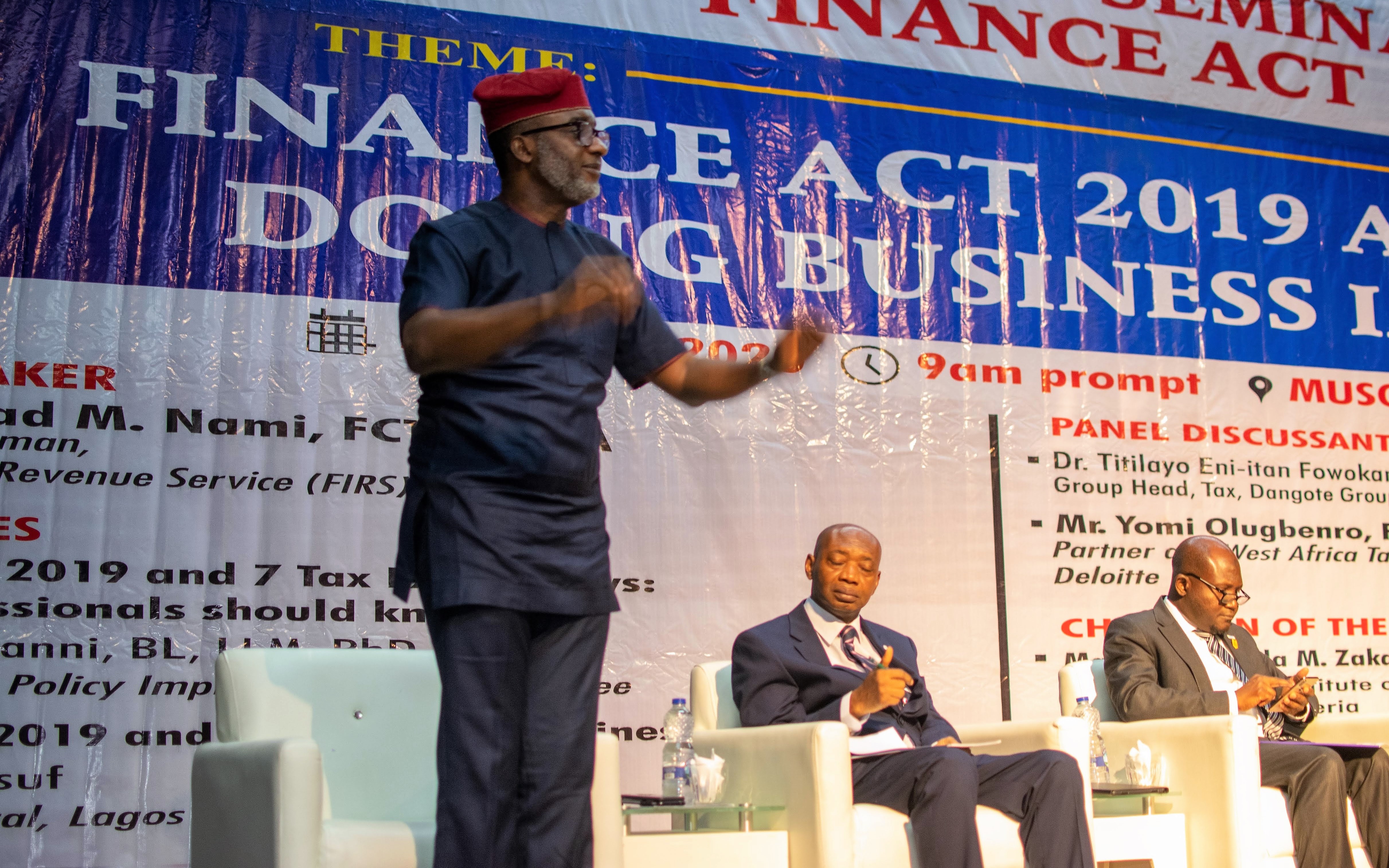Dipo Kehinde/
The Shell Hall of the MUSON Center on Lagos Island was bursting at the seams when a galaxy of accountants and tax experts gathered to discuss issues around the Finance Act 2019, key changes and implications, on March 3, 2020.
The event was a one-day seminar organized by Joint Minds International (JMI). It looked into the reasons why the Finance Act 2019 has been generating much interest among various stakeholders.
Important figures in the finance industry were assembled by JMI to discuss the theme: Finance Act 2019 and the Ease of Doing Business in Nigeria.
The experts talked about the nitty-gritty of the finance act and how it affects people, the profession and the ease of doing business in Africa’s most populous nation.
They also put a lie to the adage that says 30 adults cannot play together for 30 years as they celebrated the togetherness and heroic feats of the members of JMI who were holding the 30th edition of the seminar under the leadership of the Lead Doyen of the Club and Chairman, JMI Council, Mr Oluwatobi Ayodele Abiola FCA, a Deputy Director at the Federal Inland Revenue Service (FIRS) and Council Member, Institute of Chartered Accountants of Nigeria (ICAN).
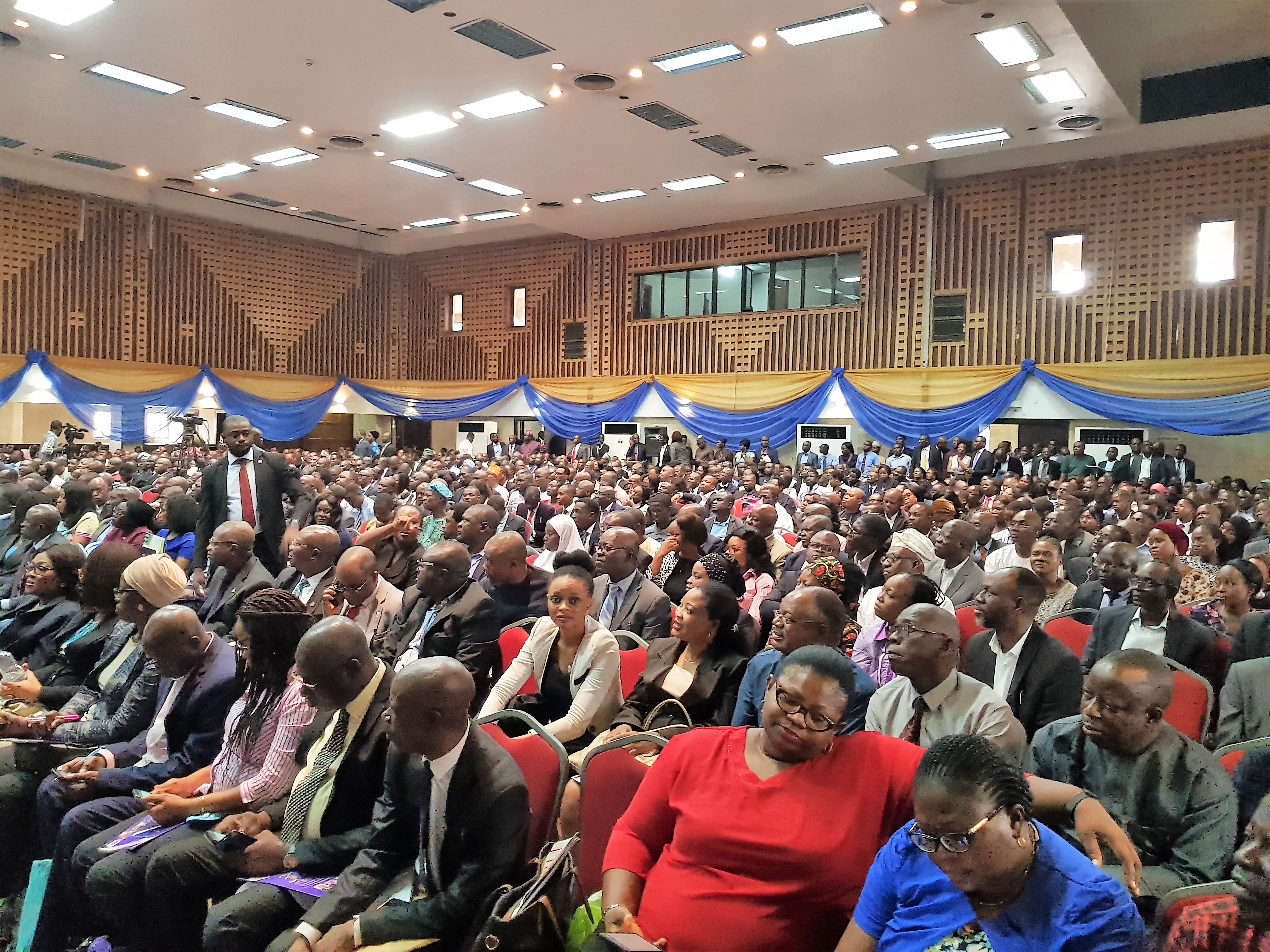
According to the Lead Doyen, JMI had produced over 1000 chartered accountants in the 30 years of its existence.
The Lead Speaker on the Finance Act 2019 and the Ease of Doing Business in Nigeria was Malam Muhammed M. Nami, Executive Chairman, Federal Inland Revenue Service, and Sub Speakers were Prof Abiola Sanni, Chairman, Tax Policy Implementation Committee and Dr Titilayo Eni-Itan Fowokan, Group Head, Tax, Dangote Group and the chairman of the annual tax conference held in Lagos.
Discussants at the seminar commended the Federal Government for the innovations made in the new finance act. They highlighted the part where the entrepreneur whose threshold is below N25million would now enjoy zero per cent VIT, and the new arrangement where both annual company income tax and monthly VAT are now addressed to the FIRS with everyone having a single tax identification number and no one is no longer required to file a monthly VAT returns, but one could file for annual company income returns.
They stressed that, whether it is withholding tax, VAT, or VIT, there’s a full registration that covers everything.
While analysing the Companies Income Tax Amendments, Dr Eni-Itan Fowokan, cautioned about a double-jeopardy, as she reflected on the stiff penalty regime.
She told the audience that taxation matter should now be a boardroom matter and not be left to tax consultants alone.
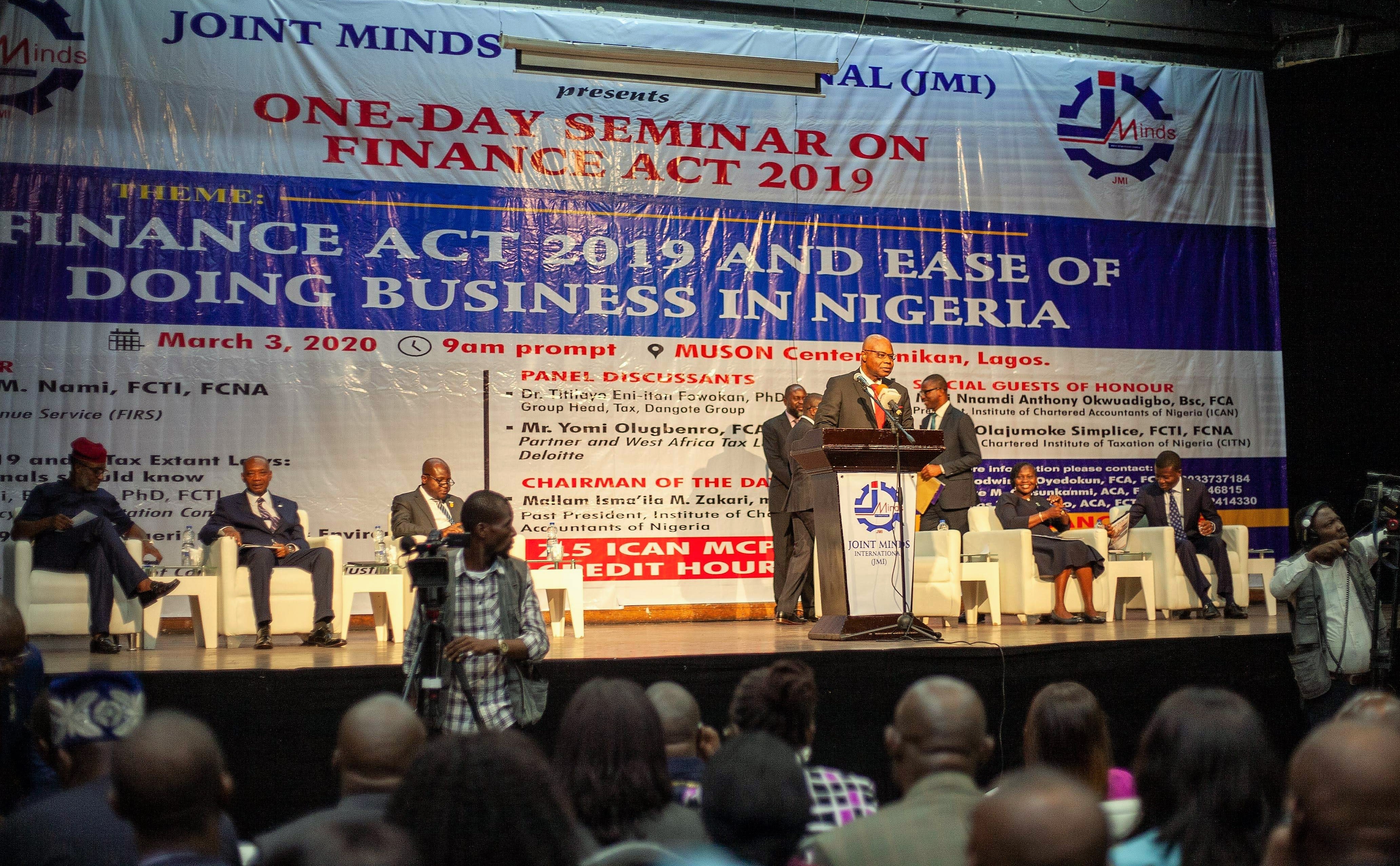
In his goodwill message spiced with intermittent jokes, a Special Guest of Honour and 55th President of the Institute of Chartered Accountants of Nigeria (ICAN), Mazi Nnamdi Anthony Okwuadigbo, said that the seminar would enable stakeholders to device feasible ways of leveraging the Finance Act to improve the country’s business environment and also chart practicable steps to resolving the grey areas in the Act.
He said, “The reason is not far-fetched why the Finance Act 2019 continues to generate interest among various stakeholders. With a history of budget deficit in the country, the need to shore up revenue becomes imperative. This is essential in meeting the developmental objectives of all arms of government. Undoubtedly, one of the most debated initiatives of the federal government in the past few months is the Finance Act 2019. This act introduces various reforms in the country’s tax system. This effort has been greeted with mixed feelings among social and economic analysts.
“While the reforms aim at increasing revenue, they are also focused on improving ease of doing business, promoting fiscal equity, introducing tax incentives and reforming domestic tax laws. Hence, the seminar on finance act 2019 and ease of doing business in Nigeria is timely for deepening the discussions on the implications of the Finance Act 2019 on ease of doing business in the country. With Nigeria’s ranking 131st out of 190 countries in the latest World Bank Doing Business 2020 report, it is safe to assume that we have achieved some Improvements on ease of doing business indicators in the country, compared to previous years. This is confirmed by the World Bank when it grouped Nigeria with other nine countries as the top to achieve notable improvement in Doing Business Index for 2020.
“While this is encouraging the ranking of 159 in paying taxes suggests that Nigeria’s tax system requires more radical and fundamental reforms. Effectiveness and efficiency in tax administration is a prerequisite for creating an enabling business environment The Finance Act has made a bold step in improving the tax system through exemption of companies with annual turnovers of less than N25 million from Company Income Tax exemption from VAT services rendered by Microfinance banks and; reduction in the complexity in tax administration and the problems of double taxation as all tax assessments would now be based only on previous year accounts.
“However, there is the need to address the well-discussed areas of concern in the Act, especially aspects that are aimed to facilitate business activities in the country Some of these include the fact that companies with annual turnovers of less than N25 million would still indirectly be liable to VAT through acquisition of input such as capital asset and ambiguity on what constitute ‘Significant Economic Presence’ and ’Agricultural Production Companies’.”
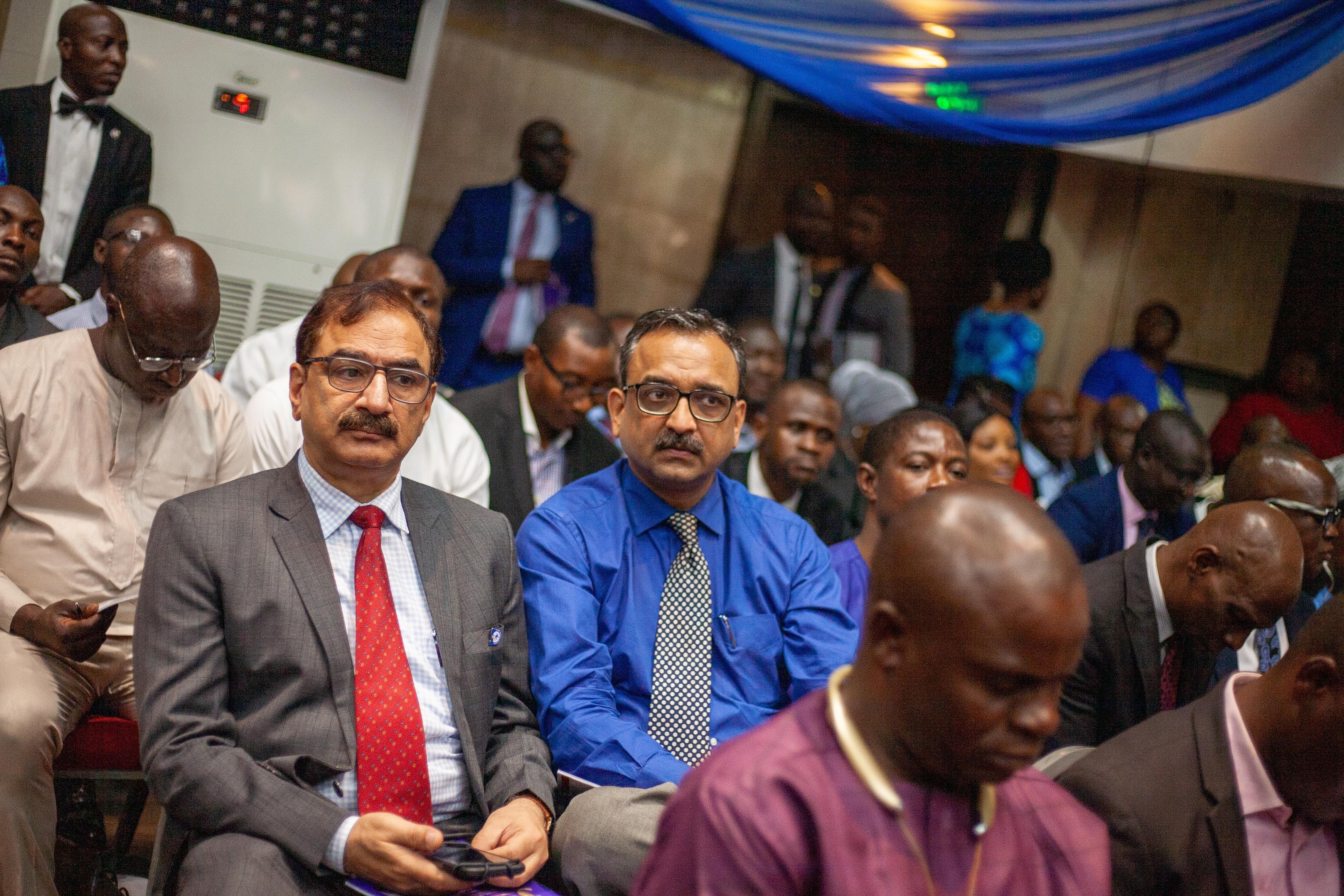
The 14th President of the Chartered Institute of Taxation of Nigeria (CITN), Dame Olalumoke Simplice, also had a lot to say about the Finance Act 2019 and Ease of Doing Business in Nigeria.
Her presentation was delivered by a representative, Elder Ezekiel Babarinde.
Her words: “I am delighted that this Seminar is holding at a time when there is heightened discourse and interactions amongst stakeholders in the Nigerian tax system on the implications of the Finance Act 2019 on the economy.
“The purpose of the Act has brought with it, several amendments to a number of tax laws in Nigeria, including the Companies Income Tax Act, 2004; Value Added Tax Act, 2007; Customs and Excise Tariff (Consolidation) Act, 2004; Personal Income Tax Act, 2007; Capital Gains Tax Act, 2007; Stamp Duties Act, 2007; and Petroleum Profit Tax Act, 2004. These amendments have been intended to reform Nigeria’s tax system for enhanced revenue generation and effectiveness.
“Aside from the intents of government, which is mainly to increase revenues via the reforms in the tax laws, there are also issues that affect the taxpayers which must be discussed at a forum such as this, With a view to addressing their concerns and offering explanations where necessary.
“As expected, this seminar is also a veritable opportunity to build the capacity of young professionals by providing structured interventions by eminent facilitators on the various intervening issues around the Finance Act 2019.
“As we are all aware, in Nigeria, amendment to tax laws takes place not so often. Therefore, it is expected that when such amendments are to be done in future, there should be not just wider consultations with stakeholders, but as much as possible their useful comments and concerns should be accommodated in the resultant legislation.
“CITN has always advocated that a review of tax laws should not be left for too long. As such, we expect that tax laws should be updated/amended annually to support and make the achievement of the expectations of appropriation acts possible. Therefore, the Federal Government deserves commendation for taking this bold step which we expect should be sustained.
“As the statutory professional regulatory body for tax practice and administration in Nigeria, the Chartered Institute of Taxation of Nigeria (CITN) is pleased and willing to partner with organizations such as yours in extending tax awareness and building skills required to engender an effective and efficient tax system for our country.”
Recalling how JMI started and how far it has come, the Lead Doyen said, “It was a dream 30 years ago, when some of us in the class decided to form this club. At that time, our focus was mainly on what could bring us together. And, in that class then, we had people who started ICAN and ICAN was just three stages; who went for articleship during their ITS and they got qualified while they were in HND 1. Some of them who knew about accounting, maybe through their uncles and brothers, got qualified earlier. We had the focus then, and that was what we believed in. Our vision was to encourage academic, social, and professional excellence. With that in mind, as students we were able to do the academic angle; we graduated. We were able to do the socials; we graduated. What we had outstanding was the professional angle. We felt that all of us then should be chartered accountants. And if we could be, then we have to mentor the people to be chartered accountants.”
Thanking a grand patron and mentor of JMI, a past president of ICAN, Mr DBO Oguntuga, Abiola said, “All of us graduated in 1991 and we went our separate ways, under the tutelage of this man. And in 1995, at City Hall on Lagos Island, we had our first seminar on VAT, a Dream in Reality. The chairman of the day and past president was Mr Emmanuel Itoya Ijewere
“Our focus was mainly in mentoring those students who were opportune to have gone to the polytechnics. And, as I speak, we’ve had over 1000 chartered accountants produced by this club; because of logistics, we are centred in the Southwest. In every polytechnic we have in the Southwest, we have a Joint Minds Club there. And what do we do?
“We pick 23 members from the semi-final class and start mentoring them to be focused in school, and to leave school as chartered accountants. And with this, we were able to start a scholarship programme, which popularly is named after me as the president of the club. It’s named Tobi Abiola ICAN scholarship scheme. And with this, there are lots of indigent students who were very brilliant but because they’re not from rich homes they cannot write the exams. We put our widow’s mites together, and most of them today are atop in the industry.
“One of those that we mentored in those days, I remember our visitor… He’s a professor today and I’m happy to talk about the council member of my institute… Prof Godwin Oyedokun. We have many of them who are successful in their rights, in business, and we come together, once in a while to ensure that this happens.”
Abiola also extolled the Rotary philosophy of “Service above self. He profits most who serves best.”
Based on special requests and popular demand, the JMI, according to the Lead Doyen would be taking a step further with the establishment of the Joint Minds Business Club.
He said, “With the business club, we’ll be able to achieve a lot because we want to produce captains of industries. When we started, we were saying it like a joke that we want to be represented in ICAN, but we never knew that it’s a dream that would come true. Today, as I stand before you, I’m a proud member of the governing council of the institute of chartered accountant of Nigeria. We have it as a dream that one day, this club would produce governors and president of the federal republic of Nigeria. Most of our members are PhD holders today.”
Malam Isma’ila Zakari, the Chairman of the session and a past president of ICAN, described the vision as a great vision.
He said, “Great things are far more than a collection of talented people. You can bring together some of the brightest minds and still have a dysfunctional team.
“What makes a truly effective team is a mixture of different qualities; chief among them is the commitment to making or achieving something that can’t be done alone. We know that great things can happen when people come together and put their minds to it. So, let me congratulate the trustees and the governing council of joint minds international, for their foresight in organizing this great event.”
Participants at the seminar included Mr Yomi Olugbenro, partner and West Africa team lead on tax at Deloitte; the Registrar, Chief Executive of the Institute of Chartered Accountants of Nigeria – Prof Ahmed Kushi, FCA; Prof Godwin Oyedokun represented the Vice President, Chartered Institute of Taxation; Pastor David Ogedengbe represented the Executive Chairman of FIRS; the DG Lagos Chamber of Commerce and Industry was represented by Simon Omeze Michael.
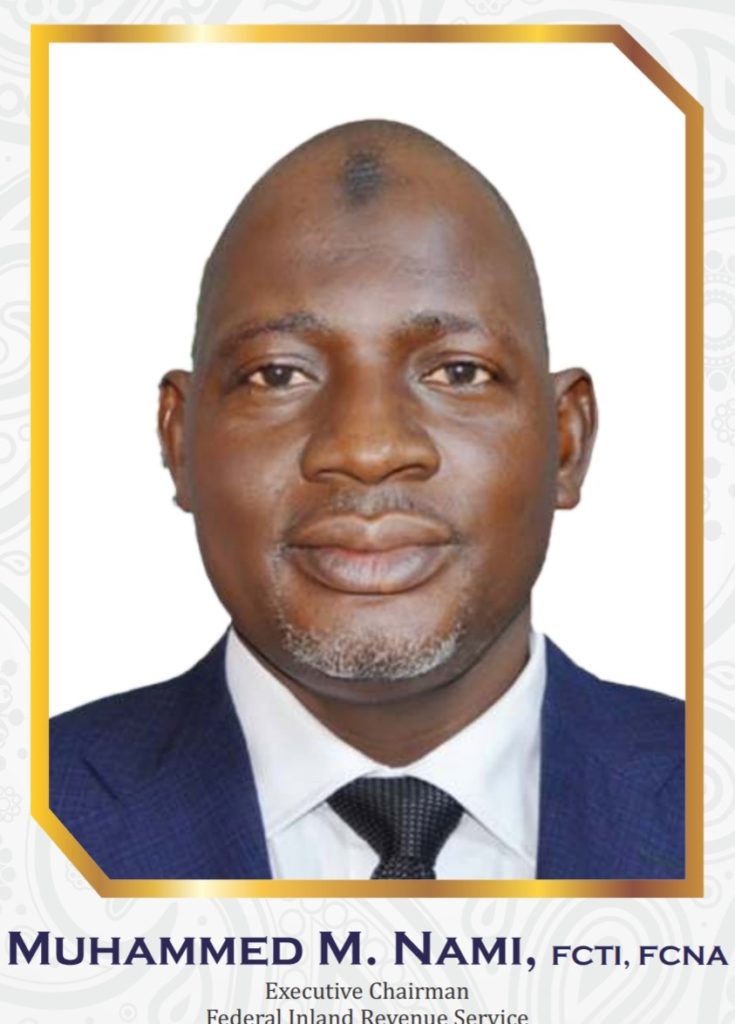

While thanking the ICAN President for being part of the seminar, the Lead Doyen called for a minute silence to honour the memory of the wife of the Managing Partner, Deloitte West Africa, Mr Folarin Fatai who missed the seminar because he just lost his partner.
There was much to munch and also take away. Prof Sanni expressed delight with the organization and the ability to keep going strong 30 years on. He sparked a burst of laughter across the huge hall when he quipped that he wasn’t even born 30 years ago to underscore his point that JMI has come a long way.
